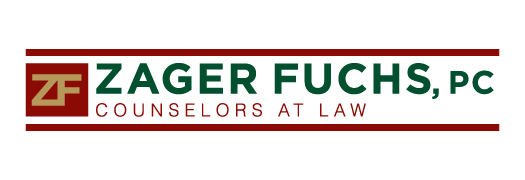Practice Areas
FAQs When Buying a Home
Frequently Asked Questions When Buying a Home in New Jersey
 WHY DO I NEED A LAWYER TO BUY A HOME?
WHY DO I NEED A LAWYER TO BUY A HOME?
The State of New Jersey requires you to have a lawyer involved in most real estate transactions. The lawyer will assist you in several aspects of the home-buying process to make sure your interests are protected. They will work with your lender to ensure that your loan is timely, and closely review all documents prior to the actual closing. They also attend the closing and help you clearly understand the documents you will be required to sign.
WHAT IS PRE-APPROVAL?
Getting pre-approved means that you have a tentative commitment from a specific lender for mortgage funding. In this case, you provide a home loan lender with actual documentation of your income, assets, and debts. Once you are approved, the lender will give you a letter of commitment stating how much money the bank is willing to loan you for a home purchase. With a pre-approval in hand, real estate agents and sellers will take you much more seriously when they see you have your mortgage funding in place.
WHAT IS ATTORNEY REVIEW?
This is a three-day period in which buyers and sellers can have their contracts reviewed by a real estate attorney. The purpose of the review period is to allow the attorney the opportunity to be sure that their client’s interests are adequately protected during the home buying process. All realtor prepared contracts must contain a three-day attorney review period. The time period starts once the fully signed contract is delivered to both you and the Seller.
WHAT HAPPENS AFTER ATTORNEY REVIEW?
After both attorneys agree that attorney review has concluded, you send to the Seller’s attorney any additional deposit monies that may be due, have your inspections performed and proceed with your mortgage. Once all is done, the attorneys set up the closing date and prepare the closing package and the closing statement.
WHAT IS A HOME INSPECTION?
A home inspection is a visual examination of the physical structure and components of your potential new home. Home inspectors focus especially on the structure, construction, and mechanical systems of the house and will make you aware of any repairs that are needed. Generally, they check the electrical system, plumbing and waste disposal, the water heater, insulation and ventilation, the HVAC system, water source and quality, potential presence of pests, the foundation, doors, windows, ceilings, walls, floors, and roof.
WHAT IS A TITLE SEARCH AND TITLE INSURANCE?
A title search is a means of determining that the person who is selling the property really has the right to sell it, and that the buyer is getting all the rights to the property that he or she is paying for. Title insurance is protection against loss arising from any problems connected to the title to your property. For example, someone along the way may have forged a signature in transferring title. Or there may be unpaid real estate taxes or other liens. Title insurance covers the insured party for any claims and legal fees that arise out of such problems.
WHAT IS AN APPRAISAL?
A real estate appraisal, performed by a licensed or certified appraiser, is an estimate of the current market value of a property, based on an analysis of current data. The current market value is what a ready, willing and able buyer might pay for the property in the current market. The appraisal helps protect the mortgage lender from lending on property that is worth less than the mortgage amount.
WHAT IS HOMEOWNER’S INSURANCE?
Homeowner’s insurance is required when you obtain a mortgage. It covers everything from fire damage to liability if someone is injured on your property. A paid homeowner’s insurance policy is required at closing, so arrangements will have to be made prior to that day.
WHAT IS MORTGAGE INSURANCE?
Mortgage insurance is an insurance policy that compensates lenders for losses due to the default of a mortgage loan. It is usually required for people who are borrowing more than 80 percent of what an appraiser estimates the property to be worth. In such cases, the mortgage lender may require mortgage insurance as a condition of the loan approval.
WHAT HAPPENS AT THE CLOSING?
At the closing, the Buyer and Seller sign the closing statement, you sign your mortgage documents and the Seller delivers the Deed. The Seller then gets their check and you get the keys. At that point, you own your new home.
About Andrew W. Krantz, Esq.
Andrew W. Krantz has been practicing law since 1990. His primary practice areas include residential and commercial real estate, estate planning and administration, commercial transactions and liquor license transfers. He has assisted numerous clients in the acquisition and sale of restaurants,
bars and liquor stores. His professional associations include the New Jersey Bar Association’s Section on Real Property and the Monmouth County Bar Association. He is a past president and member of the Northern Monmouth Chamber of Commerce. He is a member of the Monmouth County
Chapter of Brown University Alumni, for which he interviews students making application to the university. Mr. Krantz is also a member of the Real Estate
Committee for the Monmouth County Bar Association. He received his Juris Doctor degree from Benjamin N. Cardozo School of Law and received his
Bachelor of Arts degree in Business Economics from Brown University.
Areas of Practice:
Residential and Commercial Real Estate
Estate Planning and Administration
Commercial Transactions
Liquor License Transfers
